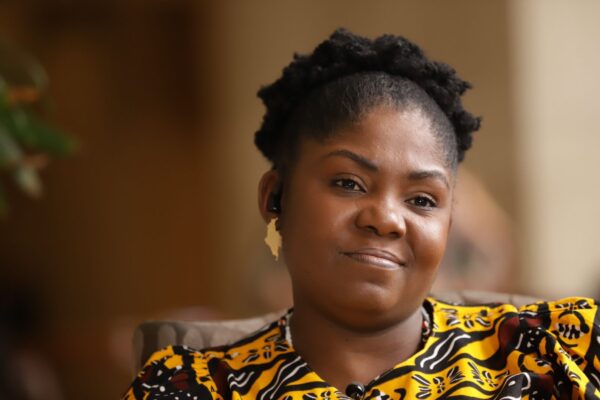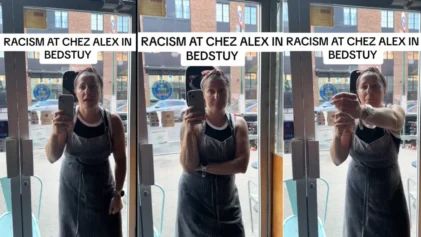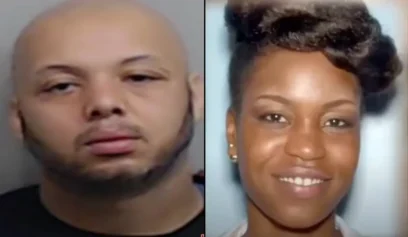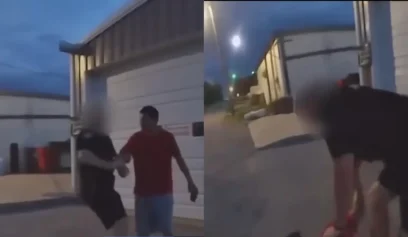A Bogota woman pled guilty to discrimination and harassment a year after mocking the race of the vice president of her country.
In 2022, the woman was caught on camera calling Colombian Vice President Francia Márquez racially derogatory term, a crime punishable by up to three years in prison.
Márquez made history as the first person of African descent to hold this office and has faced bigoted remarks throughout her term.

Luz Fabiola Rubiano, a small business owner, is an example of this form of racialized harassment. Rubiano was accused of inciting hate, compromising Márquez and other Afro-Colombians’ right not to be discriminated against, and damaging their reputations with her vicious stereotyping.
On Monday, April 10, the woman pleaded guilty to all charges, The Associated Press reported.
In September 2022, Rubiano was recorded protesting in front of the Colombian Congress. When asked a question about the administration, the woman let loose her bigoted feelings toward Márquez and her Afro-Colombian fellow citizens.
“Apes are now governing us … Francia Márquez is an ape … what education can Black people have, they steal, attack and kill,” she said.
The footage quickly spread on social media platforms, and once the newly elected vice president was made aware, she had her lawyers file a complaint, prompting an investigation by the country’s leading prosecutors.
Spreading race-based hate is against the law in the South American country.
In 2011, a landmark anti-discrimination law was passed by Colombian then-President Juan Manuel Santos. This law legislated protection for citizens who experience acts of discrimination on the basis of ethnicity, race, gender, sexual orientation, or nationality.
Should someone violate these individuals’ civil rights, they will see either parole, house arrest, or prison time, according to the National Democratic Institute.
President Santos said the law is “a form of justice,” adding, “It was time to get tough on this and to ensure the protection of the rights of those discriminated against.”
“With the passage of this law, Congress takes a step forward in recognizing vulnerable populations,” said Germán Rincón Perfetti of the National Secretariat of Women for Peace (Mujeres por la Paz).
Márquez is a member of two of these “vulnerable populations.” She is both Black and a woman.
As a Black woman in the country, she has always fought against discrimination — even reaching out to U.S. Vice President Kamala Harris before her own election to remind her of the responsibility she has to seek equity for marginalized people.
“I am sure that the majority of the people who voted for you and for President Biden did so in hope[s] of taking the knee off of the necks of African Americans in your country,” she wrote in a letter after the 2020 death of George Floyd.
Continuing, “As Afro-Colombians and Indigenous peoples, we suffer the same situation; those who have imposed armed conflict, lethal politics, gender-based violence, structural racism — they keep their knees on our necks.”
When she wrote her letter to Harris, Márquez did not realize two years later, she would share the same historical first in her country.
Márquez was elected in August 2022 as Colombia’s first Black vice president, winning on the ticket with a former guerrilla rebel, President Gustavo Petro.
Afro-Colombians or Black Colombians make up about 6 percent of the nation’s population and, like Blacks in America, disproportionately experience police-involved violence, limited access to education and other forms of opportunity, and are overwhelmingly poor.
Statistics reported that 77 percent of Afro-Colombians live in poverty or are at risk of falling into poverty.
As an outspoken advocate for racial equity, the vice president is despised by many bigoted people in her country. In January 2023, months after Rubiano’s rant, Márquez revealed to the world there was an assassination attempt against her, according to the BBC.
The vice president found a 15-pound explosive on the property of her family home. The rudimentary device was in a plastic bag containing a high-powered explosive substance made of ammonium nitrate, powdered aluminum, and nails. Her security team was able to locate it and destroy it by detonating it in a controlled environment.
While the world is not privy to any assassination attempts on the U.S. vice president, she is no stranger to public harassment and discrimination based on her race.
Before Márquez was publicly targeted by Rubiano, a report was released detailing how Harris was the recipient of thousands of sexist, racist, and hate-filled messages on Twitter.
The research showed how Twitter did nothing to divert or stop the invective targeting America’s second-highest-ranking elected official.
America’s hate crimes laws are not as aggressive as Colombia’s and comments against the vice president, even if they are laced with vile racist rhetoric, are protected by the First Amendment right of free speech.


